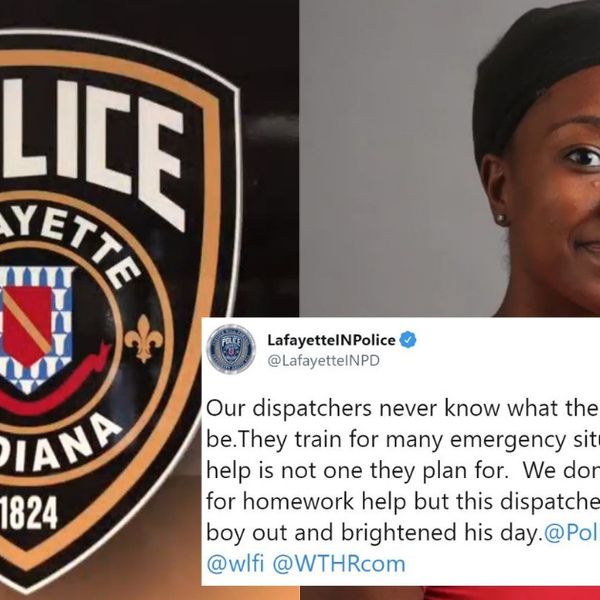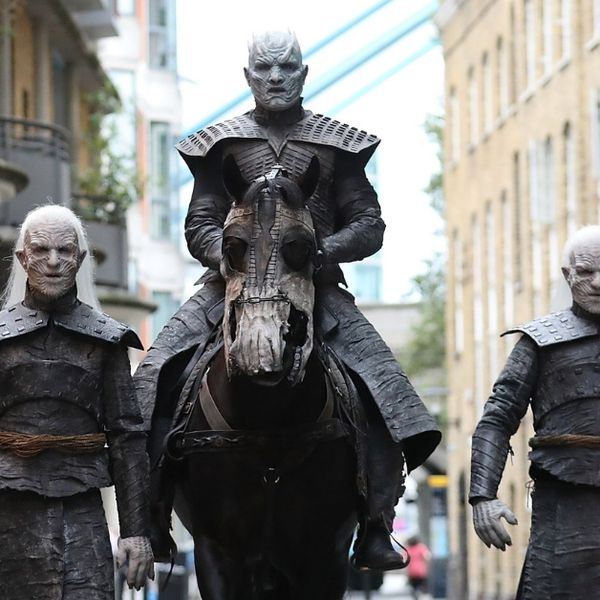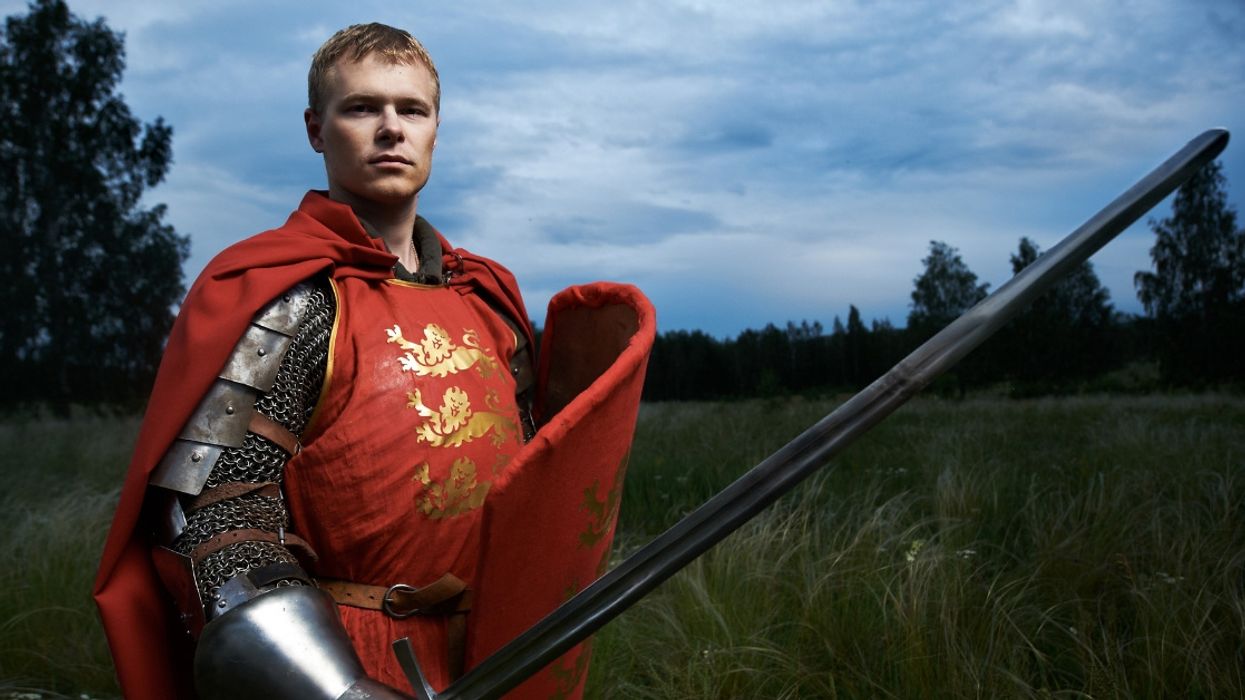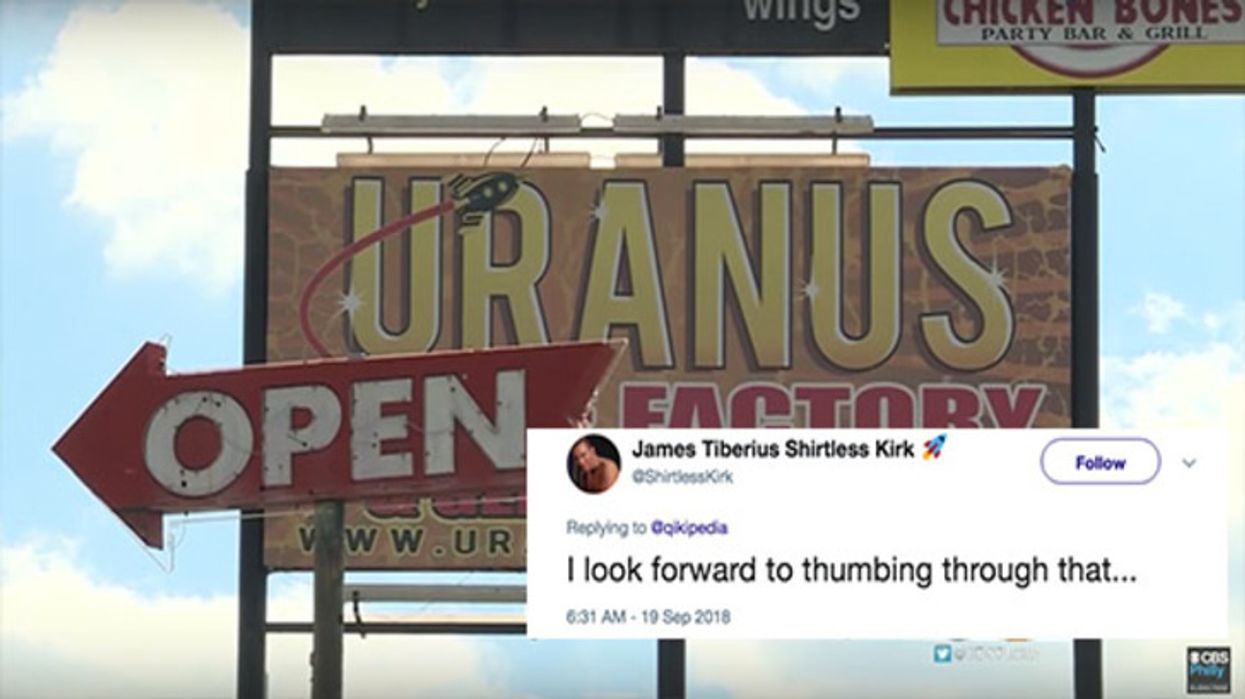June, 2003, LOS ANGELES - In celebrating the diversity of America, the United States government recognizes the heritage of each group of ethnic Americans virtually every month of the year. May has been designated Asian Pacific American Heritage Month, and, in observation of it, I was invited by the U.S. Department of Defense to tour seven military bases in Germany.
 Asian Pacific American heritage is a topic that I have spoken on before but I sensed that the Star Trek magnet had something to do with the invitation as well. I accepted the invitation with relish.
Asian Pacific American heritage is a topic that I have spoken on before but I sensed that the Star Trek magnet had something to do with the invitation as well. I accepted the invitation with relish.
Last month, the war in Iraq was an issue that had many in our nation -- and the world -- at odds with each other. But, whether hawk or dove or an owl somewhere in between, I think many of us felt a strong connection with the U.S. and British soldiers on the battlefield. They were our friends and neighbors out there in Iraq. Their courage and sacrifice, their professionalism and technological effectiveness, were amazing. I swelled with pride as I saw the brutal dictatorship of Saddam Hussein brought down by our combat forces.
 As I watched the news on television, I saw something else. I saw an American military that I had not seen before. I saw both men and women of all races as soldiers, and, distressingly, as prisoners of war and as casualties. I saw a U.S. military that truly reflected the vast diversity of American society today. I wanted to visit the military communities in Germany to thank our soldiers for a job well done and their families for their sacrifices. I also wanted to applaud the U.S. Army for its progressive diversity program. This rare opportunity was something like a non-singing, non-dancing, all-talking Bob Hope tour of our military communities in Germany. In addition, as it turned out, the tour included convivial gatherings with groups of Star Trek friends as well.
As I watched the news on television, I saw something else. I saw an American military that I had not seen before. I saw both men and women of all races as soldiers, and, distressingly, as prisoners of war and as casualties. I saw a U.S. military that truly reflected the vast diversity of American society today. I wanted to visit the military communities in Germany to thank our soldiers for a job well done and their families for their sacrifices. I also wanted to applaud the U.S. Army for its progressive diversity program. This rare opportunity was something like a non-singing, non-dancing, all-talking Bob Hope tour of our military communities in Germany. In addition, as it turned out, the tour included convivial gatherings with groups of Star Trek friends as well.
 It was a whirlwind tour. Two nights in Bamberg, a couple of nights in Ansbach, then on to Hohenfels, a night in Heidelberg, then two in Darmstadt, a weekend in Mannheim, then on to Wurzburg. It was constant packing and unpacking, meeting the brass and signing autographs for the soldiers, traveling from one base to another with my speech, "A Salute to Liberty" on Asian Pacific American heritage, at each base as the centerpiece. I collected plaques, beer steins, commemorative coins, and other gifts after each speech. The welcome was tremendous. The tour was exhilarating and enlightening. I saw and experienced so much. A tour of the Combat Maneuver Training Center at Hohenfels, with cutting edge technology combined with a Hollywood back-lot style recreation of a Slavic village complete with Slavic-speaking villagers more believable than any Hollywood extra, was most impressive. At Ansbach, I sat in an Apache helicopter wearing a high tech helmet equipped with night vision targeting lens. I visited storybook villages with cobble-stoned streets that were hundreds of years old. I toured regal palaces. The Residence, the palatial home of the Bishop prince of Wurzburg, was gloriously restored after the devastating bombing it suffered during World War II.
It was a whirlwind tour. Two nights in Bamberg, a couple of nights in Ansbach, then on to Hohenfels, a night in Heidelberg, then two in Darmstadt, a weekend in Mannheim, then on to Wurzburg. It was constant packing and unpacking, meeting the brass and signing autographs for the soldiers, traveling from one base to another with my speech, "A Salute to Liberty" on Asian Pacific American heritage, at each base as the centerpiece. I collected plaques, beer steins, commemorative coins, and other gifts after each speech. The welcome was tremendous. The tour was exhilarating and enlightening. I saw and experienced so much. A tour of the Combat Maneuver Training Center at Hohenfels, with cutting edge technology combined with a Hollywood back-lot style recreation of a Slavic village complete with Slavic-speaking villagers more believable than any Hollywood extra, was most impressive. At Ansbach, I sat in an Apache helicopter wearing a high tech helmet equipped with night vision targeting lens. I visited storybook villages with cobble-stoned streets that were hundreds of years old. I toured regal palaces. The Residence, the palatial home of the Bishop prince of Wurzburg, was gloriously restored after the devastating bombing it suffered during World War II.
 The formal garden at the palace of Swartzengen was almost as spectacular as the one at Versailles. In a magnificent sarcophagus on the altar of the Cathedral of Bamberg are the remains of the only Pope outside of the Vatican. In Bamberg, I discovered a great beer unique to that town called routbier that has a rich, dusky tang like smoke. It has to be tasted to be appreciated. The tour was memorable, made even more unforgettable by a vegetable called spargel -- a rare, seasonal white asparagus. I happened to be there at the height of spargel season. As an honored guest of constantly changing hosts, this prized delicacy was served to me at almost every dinner at each stop. As a good guest, I enjoyed the spargel until it almost grew out of my ears. The welcome was generous and warmly embracing. Glowing memories of my tour of Germany will be with me forever. My heartiest appreciations to all of the good people at each of the military communities I visited for their grand hospitality. And a special note of thanks to Sharon Yelder of the U.S. Department of Defense in Germany. She is the indefatigable problem-solver who initiated the idea of my visit and coordinated the entire trip with grace and skill.
The formal garden at the palace of Swartzengen was almost as spectacular as the one at Versailles. In a magnificent sarcophagus on the altar of the Cathedral of Bamberg are the remains of the only Pope outside of the Vatican. In Bamberg, I discovered a great beer unique to that town called routbier that has a rich, dusky tang like smoke. It has to be tasted to be appreciated. The tour was memorable, made even more unforgettable by a vegetable called spargel -- a rare, seasonal white asparagus. I happened to be there at the height of spargel season. As an honored guest of constantly changing hosts, this prized delicacy was served to me at almost every dinner at each stop. As a good guest, I enjoyed the spargel until it almost grew out of my ears. The welcome was generous and warmly embracing. Glowing memories of my tour of Germany will be with me forever. My heartiest appreciations to all of the good people at each of the military communities I visited for their grand hospitality. And a special note of thanks to Sharon Yelder of the U.S. Department of Defense in Germany. She is the indefatigable problem-solver who initiated the idea of my visit and coordinated the entire trip with grace and skill.
Wherever I go, there are communities of Star Trek friends as well. I had visited Mannheim less than six months ago for a Star Trek convention but there we were together again - organized by dear Sylvia Strybuc.
 This was another wonderful opportunity to enjoy a convivial Saturday evening with old friends and new fans. Roger Hofstetter and friends even drove in from Basel, Switzerland, to join us. It was wonderful.
This was another wonderful opportunity to enjoy a convivial Saturday evening with old friends and new fans. Roger Hofstetter and friends even drove in from Basel, Switzerland, to join us. It was wonderful.
At the end of my military tour, I gave myself a few days in Munich. Filip Krejcik, a friend who lives not far from Munich, picked me up for a visit to his village, Deggendorf. He had even arranged for a guide from the city tourist bureau. Deggendorf is a charming, formerly walled village with an historic Rathaus or city hall. We climbed the ancient stone steps of the Rathaus spire to its very top. We saw the quarters of the keeper of the spire who rang the old city bell. The view from his window was panoramic.
 From the medieval spire of the Rathaus, we strolled through the village down to the primordial flow of the great river of Europe, the Danube. A lone sculler was practicing on the fast-flowing water. That evening, we had a specially prepared dinner at Filip's new restaurant called Vis a Vis. It was salmon served with that special recurring treat, spargel -- another unforgettable dining experience.
From the medieval spire of the Rathaus, we strolled through the village down to the primordial flow of the great river of Europe, the Danube. A lone sculler was practicing on the fast-flowing water. That evening, we had a specially prepared dinner at Filip's new restaurant called Vis a Vis. It was salmon served with that special recurring treat, spargel -- another unforgettable dining experience.
One day of my stay in Munich was spent at a somber historic landmark nearby - the concentration camp at Dachau. Today, it is a museum of the inconceivable horrors that went on there. At the entrance is a wrought iron gate with the words, "Arbeit macht frei" - work makes you free - shaped in iron into it. Two of the barracks that housed the prisoners have been rebuilt. The others are only indicated by the row after row of the concrete foundations that remain. The gas showers and the crematorium remain chillingly as they were right beside each other. The main administration building, which also housed the kitchen and washroom, is the principal exhibit area. It is hard to walk through the displays of such barbarous inhumanity. I learned that the concentration camp was built in 1933 as a prison initially for the political opponents of the Nazis.
 Then the gypsies were rounded up, followed by the homosexuals, then the religious leaders. It was after "kristallnacht," - the night of the anti-Jewish rampage in November 1938 - that the Jews began to be brought to Dachau. It was a sobering reminder that injustice against any isolated minority, no matter how distant and unrelated, becomes a menace to me. In the climate of terrorist anxiety today, we must be mindful that the threat to the civil liberties of Arab Americans also becomes an assault on me. It is, as well, a threat to the fundamental ideals of America. As I viewed the exhibit at Dachau, I understood profoundly why we Americans celebrate Asian Pacific American heritage in the month of May and observe the heritage of other groups throughout the year. We are all connected. Out of the dark lessons of history, I hope we can forge a brighter tomorrow.
Then the gypsies were rounded up, followed by the homosexuals, then the religious leaders. It was after "kristallnacht," - the night of the anti-Jewish rampage in November 1938 - that the Jews began to be brought to Dachau. It was a sobering reminder that injustice against any isolated minority, no matter how distant and unrelated, becomes a menace to me. In the climate of terrorist anxiety today, we must be mindful that the threat to the civil liberties of Arab Americans also becomes an assault on me. It is, as well, a threat to the fundamental ideals of America. As I viewed the exhibit at Dachau, I understood profoundly why we Americans celebrate Asian Pacific American heritage in the month of May and observe the heritage of other groups throughout the year. We are all connected. Out of the dark lessons of history, I hope we can forge a brighter tomorrow.
Feminists Slam Man Telling Them They Can't Have Both Chivalry And Equality
A man on Twitter informed feminists they had to choose between chivalry and equality.
He was promptly raked over the coals for even assuming an antiquated concept would be considered as a viable option.
Twitter user @Rich_Cooper stated:
"Dear feminists. You either get equality or chivalry. You can't have both."
Dear feminists. You either get equality or chivalry. You can't have both.— Richard Cooper (@Richard Cooper) 1536083523.0
One user responded:
"I'll take equality. I don't need special treatment."
@Rich_Cooper #BenevolentSexism is still #sexism. I'll take equality. I don't need special treatment.— ☮️ Minkajane ☮️ (@☮️ Minkajane ☮️) 1537276790.0
Cooper's rhetorical question did not go over so well. Both women and men expressed their disdain for his message.
One male user observed that chivalry was irrelevant and treating everyone with kindness and respect was compulsory.
"What people care about is caring, empathic [sic], considerate, thoughtful people, NOT whether THEIR door is held for them or THEIR meal is paid for them."
"Are there gender stereotypes in het[erosexual] dating? Sure. But that's separate from being a warm, giving, caring, grounded person."
@Rich_Cooper What people care about is caring, empathic, considerate, thoughtful people, NOT whether THEIR door is… https://t.co/wlGHWRzKLi— Mark W. Wilson, MD (@Mark W. Wilson, MD) 1537276816.0
Some women got right down to the point.
@Rich_Cooper Translation: I will only be nice to you if you agree to be subservient to me— Elizabeth Noll (@Elizabeth Noll) 1537292709.0
@Rich_Cooper Gotta love when a man tells women what they can and can't have. Thanks for the heads up buddy 😉 https://t.co/gDMJscuTac— Hannah ✊ (@Hannah ✊) 1537285112.0
@Rich_Cooper Translation: I couldn’t possibly be expected to treat women as equals, show them respect, and still feel like a man.— Dom (@Dom) 1537293169.0
@Rich_Cooper We are sooooo bored with "chivalry" which stems from the courtly love period in the middle ages when w… https://t.co/wRho1a9DTz— Jeanthejust (@Jeanthejust) 1537280103.0
@Rich_Cooper Dear man. As a feminist, I open doors for men all the time. I also offer my seat to men in need on t… https://t.co/uxdwfh1kEM— My ovaries dream of puppers (@My ovaries dream of puppers) 1537502301.0
The notion of chivalry and equality are mutually exclusive and not a lot of people thought it was a major priority for feminists.
Common courtesy is not chivalry.
@Rich_Cooper Nah. That's some real childlike, oversimplified thinking. There are obviously more than these two op… https://t.co/lUqnEJhIAp— TheQuietRanger (@TheQuietRanger) 1537342901.0
@Rich_Cooper Wow, I had no idea that feminists were campaigning for chivalry, thanks for the Valuable Insight lol… https://t.co/iK62FTM9WY— Tracy Campbell the DM (Dungeon Mom) (@Tracy Campbell the DM (Dungeon Mom)) 1537294172.0
@Rich_Cooper I hold the door open for a guy walking into Starbucks behind me. Tomorrow, he might do the same for me… https://t.co/xWQEu6QHrM— Emma Scott (@Emma Scott) 1537294526.0
This user pointed out the fact that chivalry stems from a history of men outdoing other men. The concept had very little to do with women.
"Chivalry is a medieval concept of men dressing to impress other men. It has little to do with equality."
"Some men were on top, other men were beneath them. Historically, women were rarely invited into the process."
@Rich_Cooper @kent_imig Chivalry is a medieval concept of men dressing to impress other men. It has little to do wi… https://t.co/m8YPUkaUzm— Mark Findlay (@Mark Findlay) 1537257080.0
Neil Bradley described the outdated concept of chivalry as one that implies men being superior to women in a September 8, 2017, article for Medium publications.
"Examples: opening the door for a woman, paying for a woman's meal, gesturing for a woman to go first. The justification is either that women are not physically as strong (to open the door), able to provide (pay for their own meal), or are more deserving of compassion than men (allowing women to go first)."
Bradley also added that he wants to treat others the way he wants to be treated and asked if that approach should be motivated by chivalry or equality.
"If the genders are to be considered equal and treated equally, how a man treats a woman will essentially be the same as how a man treats a man."
"The obligation to open the door, pay for the meal, and let women go first vanishes. Men do not do this to other men, therefore why do it for women?"
His final take was that the two concepts can't co-exist. Either one is chivalrous or treats everyone as equals.
At the end of the day, people were happy to show chivalry the door.
@seanrmccauley @DoverCook @ShappiKhorsandi @Rich_Cooper @MarkFindlay26 @kent_imig Nobody needs chivalry. Equality a… https://t.co/isq5Fo84iU— John Dougherty (@John Dougherty) 1537357843.0
H/T - GettyImages, Twitter, Indy100, Medium
Katy Perry, P!nk, Paul McCartney And More Sign Letter Threatening To Boycott SiriusXM Radio
Hundreds of artists have signed a letter threatening a boycott if SiriusXM's parent company, Liberty Media, doesn't back down from opposing the Music Modernization Act.
The act, which was expected to pass through Congress, streamlines royalty payments in the new age of digital technology, but it seems SiriusXM is objecting to a small section that would have the satellite radio company paying royalties on recordings dating before 1972.
That's a whole lot of songs and a whole lot of money the company is hoping to skip out on paying, but not if stars like Paul McCartney, P!nk, Stevie Nicks, Sia, Carly Simon, Gloria Estefan, Mick Fleetwood, Don Henley, Max Martin, and Katy Perry can help it.
The letter read, in part:
I'm writing you with grave concern about SiriusXM's opposition to the Music Modernization Act (Classics Act included).
We are all aware of your company's objections and trepidation but let me say that this is an opportunity for SiriusXM to take a leadership position. As you are aware, 415 Representatives and 76 Senators have already cosponsored the MMA along with industry consensus. It's SiriusXM vs all of us. We can either fight to the bitter end or celebrate this victory together. Rather than watch bad press and ill will pile up against SiriusXM, why not come out supporting the most consequential music legislation in 109 years? We do not want to fight and boycott your company but we will as we have other opponents. Stand with us! Be brave and take credit for being the heroes who helped the MMA become historic law! Momentum is building against SiriusXM and you still have an opportunity to come out on the right side of history. We look forward to your endorsement but the fire is burning and only you can put this out.
SiriusXM resoponded with a letter of their own:
Over the past several weeks, we have been the subject of some stinging attacks from the music community and artists regarding our views on the Music Modernization Act. Contrary to new reports and letters, this is really not about a SiriusXM victory, but implementing some simple, reasonable and straightforward amendments to MMA. There is nothing in our "asks" that gut the MMA or kills the Act. So let's talk about the substance of the amendments we propose, because we truly do not understand the objections or why these concepts have incited such a holy war.ontrary to the accusations, SiriusXM has proposed three simple amendments to the MMA.
First, SiriusXM has asked that the CLASSICS Act recognize that it has already licensed all of the pre-1972 works it uses. This amendment would ensure that artists – the people who are supposed to be at the heart of the MMA – receive 50% of the monies under those existing licenses. Is that unfair? Just today, Neil Diamond wrote in the LA Times that: "I receive a small amount of songwriting royalties, but no royalties as the recording artist." How can that happen? To date, SiriusXM has paid nearly $250 million dollars in pre-'72 royalties to the record labels. We want to make sure that a fair share of the monies we have paid, and will pay, under these licenses gets to performers. Without this provision, artists may never see any of the money SiriusXM paid, and will pay, for the use of pre-1972 works. Artists not getting paid hurts our business!
Second, Sirius XM thinks that the fair standard to use in rate setting proceedings is the standard that Congress chose in 1995 and confirmed again in 1998 – which is called the 801(b) standard. However, we are willing to move the "willing buyer/willing seller" standard contained in the MMA. In exchange, we have asked for the same concession that the MMA grants to other digital music services, but we were left out of — simply that the rates that were set last year for five years now apply for ten years. We thought this was a fair compromise when we read the "new" MMA that was released this weekend by the Senate, and are willing to live by that compromise.
Third, SiriusXM is asking the simple question: "Why are we changing the rate court evidence standard for musical compositions in this legislation so that it gives another advantage to broadcasters over satellite radio and streaming services?" There is no policy rationale for this change to tilt the playing field further in their favor, and frankly no one has been able to explain it to us. It is only fair that we debate why the change to Section 114(i) is in the MMA.
Did you all catch that? It sounds like lawyer speak for "we don't really want to say where we stand."
It seems all the letters were for naught. The Music Modernization Act passed in the U.S. Senate.
The #MusicModernizationAct has been passed by the U.S. Senate! 🎶 Along with our members across the country, we're e… https://t.co/52yNhtV4zk— Recording Academy / GRAMMYs (@Recording Academy / GRAMMYs) 1537318533.0
@kayhanley @SIRIUSXM Hi @kayhanley, I absolutely support the #MusicModernizationAct. I signed on as a cosponsor ear… https://t.co/j4JHXpLBxI— Elizabeth Warren (@Elizabeth Warren) 1537225190.0
People said this was impossible. Some even worked hard to make it impossible, even telling outright lies about wh… https://t.co/iMTlwJLWVw— Future of Music Coalition (@Future of Music Coalition) 1537309844.0
We're thrilled to share that the Senate has unanimously voted to pass the #MusicModernizationAct, an historic miles… https://t.co/Uuy2Yp8zCw— ASCAP (@ASCAP) 1537311517.0
It was time to celebrate and dance in the streets.
@ASCAP @Beth_ASCAP Grateful. That says it all. Grateful past language for the sweet souls who worked so hard to mak… https://t.co/JSeUNCwFSd— Paul Williams (@Paul Williams) 1537319434.0
@ASCAP @Beth_ASCAP @IMPaulWilliams YES!!!! Songwriters are dancing everywhere!— James Grey (@James Grey) 1537315642.0
@ASCAP @Beth_ASCAP @IMPaulWilliams Thank you for helping us all organize to get this done #MusicModernizationAct— Tangent Recording (@Tangent Recording) 1537311639.0
@ASCAP @Beth_ASCAP @IMPaulWilliams Greatness Is What Greatness Does....And This Is Great.— Eddie C Person Jr (@Eddie C Person Jr) 1537365270.0
@ASCAP @Beth_ASCAP @IMPaulWilliams #Love it!— CKGTHEDON (@CKGTHEDON) 1537315443.0
@ASCAP @Beth_ASCAP @IMPaulWilliams Fantastic News! Thank You U.S. Senate ~> Pass it House Of Representatives ~> Sig… https://t.co/tukiZ8Ryug— MarkAlexanderCarroll (@MarkAlexanderCarroll) 1537321589.0
@ASCAP @Beth_ASCAP @IMPaulWilliams Simply amazing hard work pays off.— PedroBarr (@PedroBarr) 1537320953.0
@ASCAP @Beth_ASCAP @IMPaulWilliams Thank all of you for your tireless efforts and work.Protecting what is important… https://t.co/goFps7yu2V— Roney Hooks (@Roney Hooks) 1537317136.0
@ASCAP @Beth_ASCAP @IMPaulWilliams I am so thankful for this wonderful change. We songwriters deserve it!— J.R. FOWLER (@J.R. FOWLER) 1537322119.0
As the saying goes, honest pay for honest work.
Some Residents Of Uranus, Missouri Are Not Happy About The Name Of Their New Local Newspaper 😆
There's nothing like a good pun about human anatomy. Really gets the juices flowing!
The Uranus Examiner is coming to this Missouri town. Yes, really. https://t.co/RKy7kDcCFT— The Kansas City Star (@The Kansas City Star) 1536865442.0
Owners of the new Uranus Examiner must have been snickering as they announced the paper's name. Apparently, it's caused quite the controversy in the small town of Uranus, Missouri, over the last few days.
Residents are divided over whether the pun is an embarrassment or perfectly snarky:
“It’s a serious newspaper!” declares the managing editor of the Uranus Examiner. @nypost https://t.co/uig5eYxT2t— Bryan A. Garner (@Bryan A. Garner) 1537038088.0
Folks on the internet responded with maturity and composure after learning about the Uranus Examiner.
Oh, wait. No they didn't.
@qikipedia Uranus Examiner... it's got a nice ring to it 😀.— Roy Elliott (@Roy Elliott) 1537364058.0
I pitched “The Regina Monologues” as the name for my column at the Regina Leader-Post and was unceremoniously turn… https://t.co/aejjXcooWK— Jana G. Pruden (@Jana G. Pruden) 1536938407.0
If we ever colonize Uranus, the hardest part will be picked a newspaper name. "The Uranus Examiner"? Gonna be rough.— Scott Johnson (@Scott Johnson) 1537192690.0
@qikipedia How is it I've lived in Missouri my whole life and never gone through Uranus— Joshua Ryman, Sigma Grindcore Consultant (@Joshua Ryman, Sigma Grindcore Consultant) 1537366074.0
The newspaper name is a source of controversy — “Butt I like it,” the Uranus mayor said. https://t.co/xZWn4qthd1— Kaitlyn Alanis (@Kaitlyn Alanis) 1536865208.0
If you think about it... there might actually be a method to the madness here. The brand new paper's name has received widespread media coverage over this past week. Simply put... everyone's talking about Uranus.
In terms of publicizing their new venture, the owners of the Uranus Examiner have actually done a pretty sweet job!
In the video above, a woman suggests the paper should have been called "The Pulaski County Examiner."
If you ask me, that's TOTALLY BORING, and wouldn't have generated as much interest and publicity for the paper. So while the name might be cringeworthy to some, you can bet Uranus that it'll stick around. Who knows, Uranus might even grow as a result!
H/T: Indy100, The Kansas City Star
Woman Was Fired For Refusing To Wear A Bra At Work—And Now She's Suing
Christina Schell, from Alberta, Canada, stopped wearing bras three years ago citing health reasons.
While Schell did not specify the health reasons, she did state she finds them to be "horrible."
But after her refusal to sign or adhere to a new enforced dress code policy to wear a bra or tank top under her work shirt at a golf course grill where she worked, Schell was promptly fired.
Now, the 25-year-old has filed a human rights violation against the Osoyoos Golf Club, Osoyoos, in British Columbia, Canada.
Schell said:
"I don't think any other human being should be able to dictate another person's undergarments."
When she asked the general manager, Doug Robb, why she had to comply, the manager told her the mandate was for her protection.
Robb allegedly said:
"I know what happens in golf clubs when alcohol's involved."
After losing her job, she brought the case to the British Columbia Human Rights Tribunal and told them the club's dress code was discriminatory because the rule didn't apply towards male employees.
Schell told CBC:
"It's gender-based and that's why it's a human rights issue. I have nipples and so do the men."
David Brown, an employment lawyer in Kelowna, BC, said gender-specific dress codes could be viewed as discriminatory under the BC Human Rights Code.
He stated:
"It's an interesting question as to whether or not an employer can dictate the underwear that women can wear, but they don't say anything about the underwear that men can wear, and does that create an adverse impact on the individual?"
Brown added:
"If this policy is found to be discrimination, the next question is does the employer have a bonafide occupational requirement to essentially impose this on the individual?"
"I'm kind of scratching my head as to what that occupational requirement would be."
@GlobalBC The policy is sexist the peopl supporting it are sexist. Hope she wins her complaint— Lori bell (@Lori bell) 1529692660.0
@Shelby_Thom @WoodfordCHNL @GlobalOkanagan @GlobalBC Then men should have to wear either a tank top or undershirt— caffene fiend (@caffene fiend) 1529624161.0
@SoldByBrock @Shelby_Thom @GlobalOkanagan @GlobalBC What does common courtesy have to do with wearing a bra? Breast… https://t.co/ZVI2xDdpgf— M Shumway (@M Shumway) 1529843759.0
As for the tank top option, due to working under oftentimes extreme heat serving tables outsides, Schell did not want to wear another layer of clothes just because of her gender.
Schell said:
"It was absurd. Why do you get to dictate what's underneath my clothes?"
Employment lawyer Nadia Zaman told CBC that the club can enforce a gender-specific policy as they deem necessary as long as the establishment can prove it is for the occupational safety of its workers.
But the attorney questioned if forcing female employees to wear a bra was applicable in this case.
Zaman stated:
"If they simply require that female employees wear a bra but then they don't have a similar requirement for males, and they can't really justify that … then there is a risk that their policy's going to be deemed to be discriminatory."
Under British Columbia's discrimination law, it is illegal for employers:
'to discriminate against any individual because of his race, color, religion, sex, or national origin'.
@GlobalBC @globalnews Logistically bras or the absence of does not impact health or work performance. That is my v… https://t.co/65cLHBMowf— Louisette Lanteigne (@Louisette Lanteigne) 1529769211.0
McDonald's employee Kate Gosek, 19, agrees with Schell in that the dress code is "unnecessary." She too was harassed by her employers at a McDonald's in Selkirk, Manitoba, over refusing to wear a bra.
"She just told me that I should put on a bra because, McDonald's—we are a polite restaurant and no one needs to see that."
Schell's case sparked plenty of debates on Twitter.
@DunnMan77 @GlobalBC It's just discriminatory, woman shouldn't have to wear bras if they don't want to. As well as… https://t.co/RXhRVWUuNy— Mary Johnson (@Mary Johnson) 1529685276.0
@DunnMan77 @GlobalBC Men do not have to wear underpants if they don't want to. As of right now there are no laws to… https://t.co/l8FuPVybWo— Mary Johnson (@Mary Johnson) 1529686418.0
@GlobalBC Women have the right not to be forced to wear a bra Shaving & makeup also is a choice. If you want to do… https://t.co/Ybkj6PLDnD— Lozan (@Lozan) 1529686156.0
@Lozan72 @GlobalBC I would completely understand her and your argument if we were talking about a potential law to… https://t.co/trRyNAubn4— Chris George (@Chris George) 1529690293.0
@GlobalBC This story frustrates me. There's no dress code equivalent for men? Well if I saw the outline of a male s… https://t.co/5YbAvXKRcO— Molly Max (@Molly Max) 1529705327.0
Schell is not alone in her disdain for bras.
@GlobalBC I personally HATE wearing a #bra absolutely hate it with passion and unashamed to admit it. I HATE BEING… https://t.co/GEi3LtxIDa— Lozan (@Lozan) 1529686305.0
Schell is still waiting to hear from the Human Rights Commission about her claim.
H/T - GettyImages, Twitter, Indy100, CBC

















